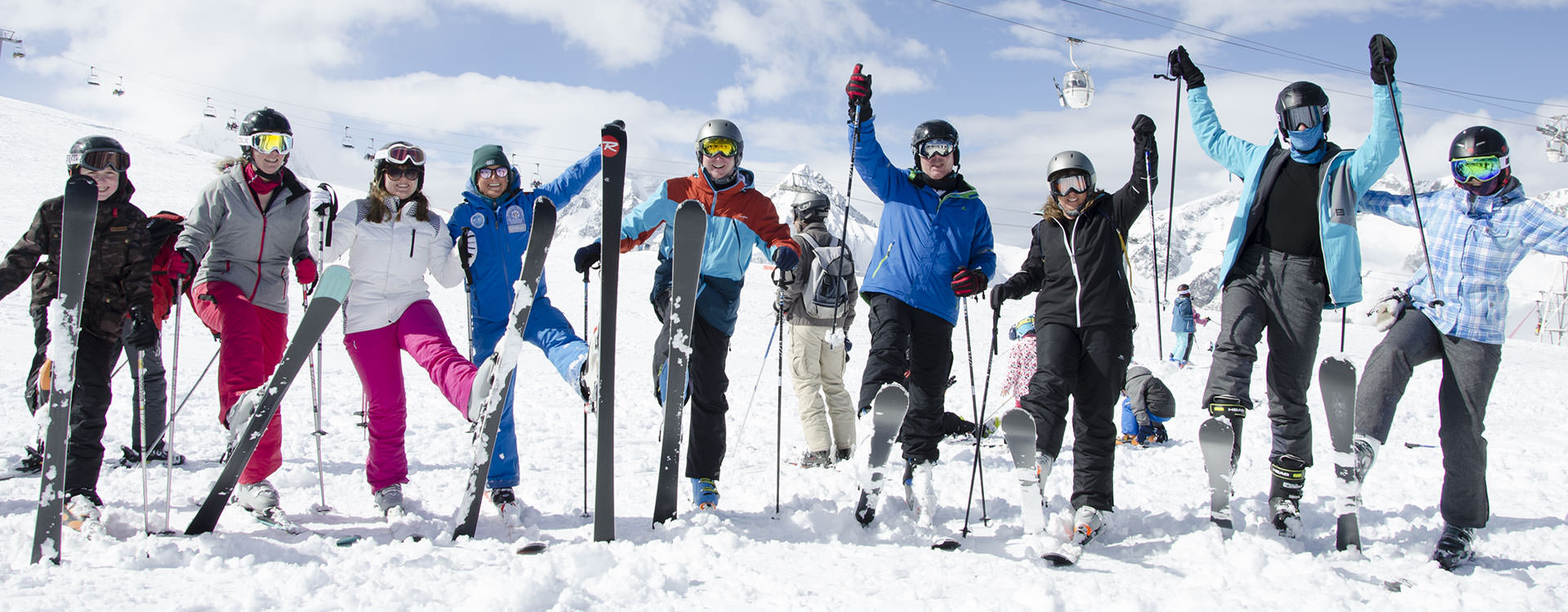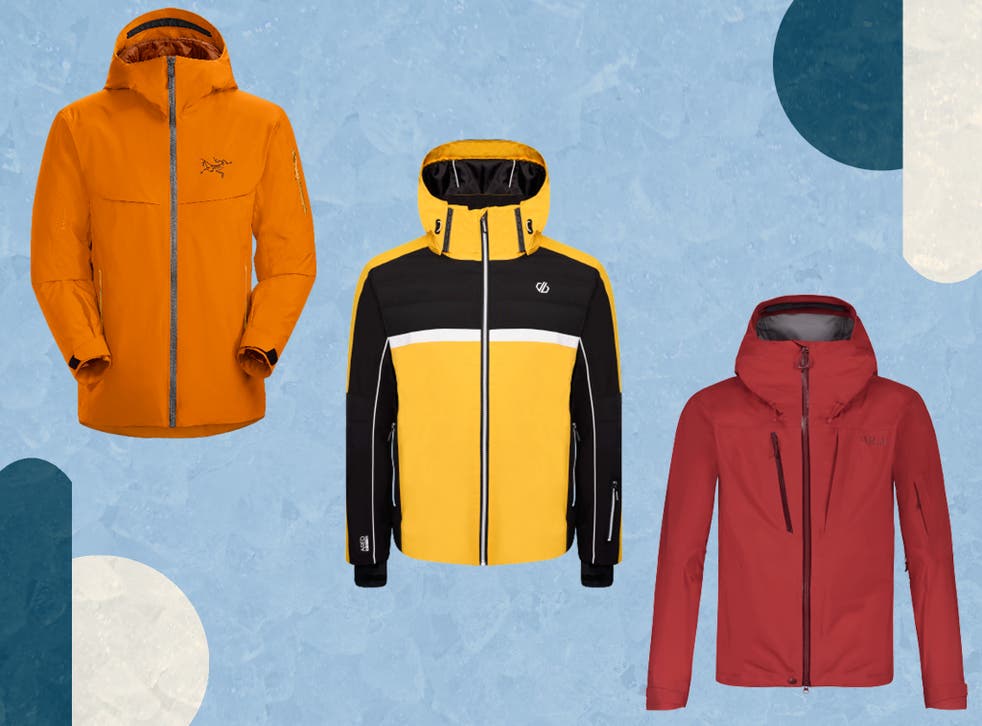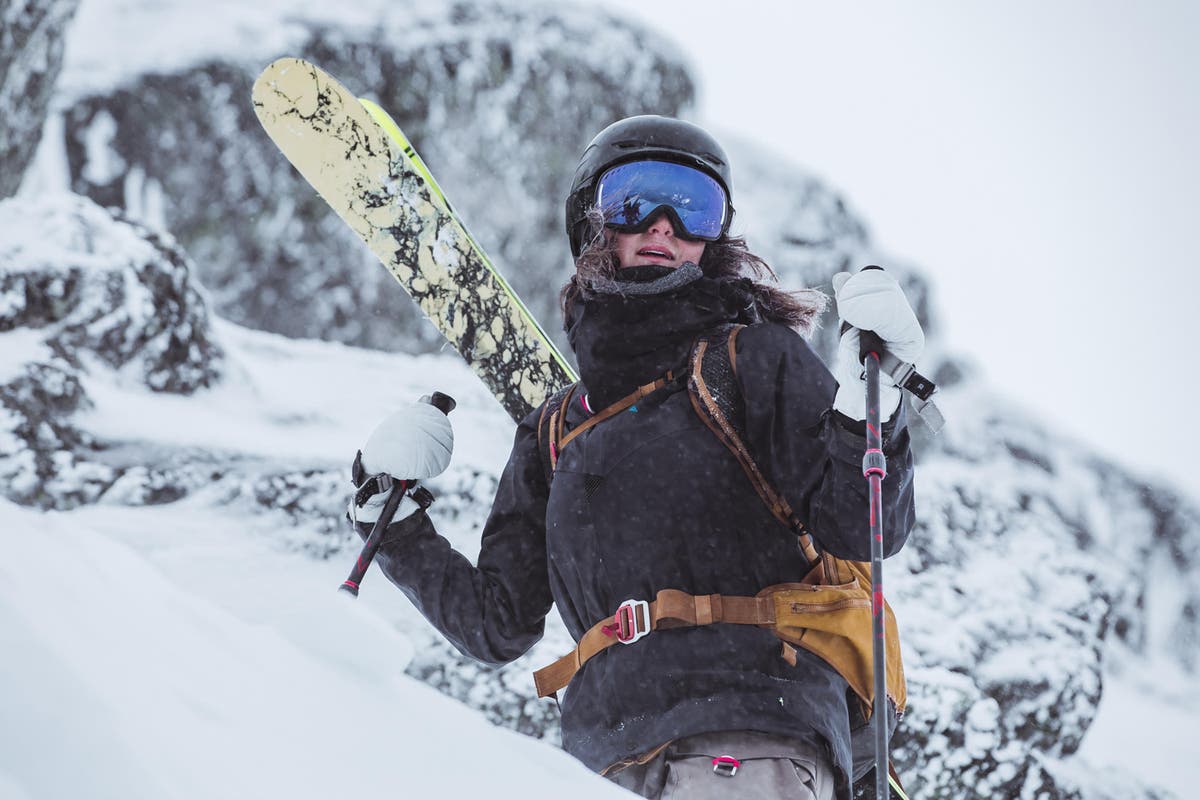
You can have lots of fun on the ski slopes with a good pair of ski pants. There are many styles to choose from, including baggy, slim-fit and stretchy. These types of pants can keep you warm and dry in all types of conditions. There are even insulated options. It is important to select the right kind of pants for your specific needs.
If you want the most protection from the weather, you need to invest in a quality pair of pants. Some of the best features for pants include an insulated jacket, waterproof zippers, and zippered pocket. Some brands also claim abrasion-resistant features. However, your interest will likely be in how the products fit you.
The best pants for women are made with high-quality insulation, a snug fit and stylish features. There are even some bib-style options. Backcountry skiers favor bibs. They offer a more fitted look and a slimmer silhouette.

Ski pants that are adjustable in the waist and have built-in boot gaiters will be your best choice. You will be able to keep your legs dry and warm as you traverse the mountains. You should also ensure that the pockets have a good design. Also, don't forget to get a pair with key holders or a pass clip.
For backcountry trips, it is a good idea to choose pants with venting. Other than the traditional zip-pockets you may also like to have thigh vents. This will allow you to get the most from your skiing, without having to sacrifice your comfort.
Avalanche beacon pockets are a feature that is found in the best ski pants. Some brands do not offer this feature so be sure to check that your brand does. You should also look for pants that can adjust to your waist. A good fit is essential, but a looser cut will allow you to move more freely.
Look for ski pants that are made of a durable fabric if you're tight on budget. This is especially important if you intend to backcountry tour. Alternatively, if you're looking for an insulated option, check out Columbia's Bugaboo pants. These pants are lightweight, insulating, ergonomic and available in sizes 1X-3X.

If you are on a tight budget, look for pants that offer an insulated shell, waterproof zippers, boot gaiters, and a variety of colors. These are great options and will keep you warm up on the mountain.
Whether you're a beginner or a pro, you'll appreciate the freedom that a great pair of pants can give you. The perfect pair of pants will allow you to travel anywhere and at any hour. Just remember that you should always take your time before buying a new piece of clothing. Your winter ski outfit can end with your pants.
You can rest assured that you are getting the best ski pants by doing some research. You'll find the right fit for you, whether you are looking for an insulated pair, a high-quality, or a bib.
FAQ
How much luggage should I take with me?
The length and type of trip will dictate how much luggage to take. If you are traveling by plane, you only need hand baggage, usually less than 20kg. For a bus or train ride, however, you will require more space.
You will receive a form with all the details about your flight when you arrive at airport. This will include information such a weight of your bags, and whether you need assistance with checking them in.
This must be done before you leave your home. You could end up spending hours waiting for your luggage to be checked while others check theirs.
Travel light as you never know what may happen. If your bag is lost or damaged, you will not have any clothes.
Where should I store my luggage?
There are many choices. Most people use airport lockers. These lockers are located in the vicinity of the security area. These lockers cost $5-10 per day depending on their size.
A storage unit can be rented. These units are commonly found outside shopping centers or large hotels. There are discounts available for multiple units, although prices can vary.
Third, you can hire a porter. A porter will help carry your luggage from the carousel to your room. He will charge a small service fee for each trip.
These are the things that you must remember when traveling.
Traveling can be stressful. You'll often find yourself in situations where you have little time to make decisions. Prepare to be flexible.
Sometimes you might find yourself stuck for days, weeks or months. If you have a plan, you'll be able to provide food, water, shelter and a place to rest. But if you haven't, you may have to improvise.
In these cases you will need to rely on your best skills. You will have to rely on your instincts and experience to make quick decisions.
But there are times when you can't choose. It could happen that you are stranded without cell phone coverage, run out of gas, or have been robbed. You will need to be flexible to any situation that presents itself.
The key to success is to stay calm, remain focused and act decisively. Don't panic. Instead, keep your eyes on the things you can control.
For example, if you're lost in the woods, you can choose which direction to go. Or if you're hungry, you can eat berries or mushrooms. Rainwater or melting snow are good options if you're feeling thirsty.
You can also rest if you are tired. Wrap up warmly if it's cold. You can also change your clothes if you are wet. Whatever you decide, you'll feel better if you stay positive.
What snacks can I bring on the plane?
You have many options for snacks to take with you when flying. Consider bringing any foods you like while on the road.
You could pack, for instance, chocolates and other chocolate-related treats.
Perhaps you want something savory? You could pack some crackers or cheese.
It is also important to consider the type of beverages you'd like to bring onboard. Maybe you prefer something hot or cool?
Whatever kind of snack or drink that you choose to bring along with you, make sure everything is packed securely.
You won't have to worry about your items getting damaged while traveling.
What should vacationers bring?
You must know what you want from your holiday. It's not just about packing clothes. It's also important to think about where you are going, and how long you will be there.
The first thing you need to do is think about what types of activities are most appealing to you. You might want to go scuba diving if your destination is exotic. You might also want to participate in local festivals and events if you plan to stay longer.
It is crucial that you inform the people responsible for your care if you have any health problems. They can then plan accordingly.
What documents should I have with me while traveling?
You can always access important documents while you are on the road by keeping copies at home. Also, keep copies of your passport, driver’s licence, and other identification cards, along with any credit card information, in case you need them, to make it easy to access when you travel.
It's always a good idea to carry a photocopy of your passport with you so it can be used as proof of identity if needed.
Make sure to keep a copy of your itinerary and any reservations. These will help keep you organized and allow you to plan your trip.
This should be in addition to the original flight ticket and hotel reservation details. You will be able to reach someone back home if there is any trouble.
You should never leave valuables behind. It's a good idea to keep valuables safe and secure by storing them inside your luggage or on a money belt.
To avoid costly items being lost, make sure you check your luggage before you leave.
Remember: It's always safer to keep things simple than to try to over-plan everything.
Enjoy the ride and just relax.
What's the first thing you should do when you arrive at your travel destination?
It is a good idea to have a plan for when you get to a destination. This helps you to know what to expect and where you should go next.
You need to plan ahead to ensure you don't miss anything important.
You should also research what museums, parks, or landmarks you want to visit if you are planning to visit a city more than once.
A map of the area may be useful and you might want to read up on the history.
Statistics
- Alcoholic beverages with more than 24% but not more than 70% alcohol are limited in checked bags to 5 liters (1.3 gallons) per passenger and must be in unopened retail packaging. (tsa.gov)
- Case in point: the private island of Ilha Caldeira, less than seven miles off the coast as part of the Primeiras and Segundas Archipelago, is located within the marine-protected area with 20 percent of the country's intact living coral. (travelandleisure.com)
- Alcoholic beverages with 24% alcohol or less are not subject to limitations in checked bags. (tsa.gov)
- They're also likely to offer babysitting services, in case you'd like to have dinner one night after 7 p.m. (travelandleisure.com)
- No Checked Bags: No Alcoholic beverages with more than 70% alcohol (over 140 proof), including grain alcohol and 151 proof rum. (tsa.gov)
External Links
How To
Which are the best travel tips and tricks for beginners?
You can travel is an exciting adventure, but there's a lot you need to be aware of to make sure you have a safe and enjoyable journey.
These are some tips to help plan your next vacation.
-
Get your bookings in early. The prices will be lower if you book early. By booking in advance, you can save money on hotels and flights.
-
Stay-at-budget accommodations. Cheap hotels are more affordable. These hotels are often located close to shopping and public transportation.
-
Don't overpack. Make sure to pack light. You can leave room for souvenirs or gifts. You should wear clothes that fit comfortably and don't wrinkle easily.
-
Use common sense. Traveling alone? Don't go out at night. Avoid dark neighborhoods or areas that are prone to crime.
-
Prevent theft. Keep valuables locked away from sight. Swimming is a great way to keep valuables safe.
-
Take care with your cash. Tourists living in foreign cities are often the target of thieves. Keep your money away from prying eyes and only use ATMs at banks or protected facilities.
-
You need to know what you are doing. You should know how to use public transport before you book a hotel. You can find out more about popular attractions, restaurants, or other sights.
-
Learn about safety. Before you travel, learn about the culture, laws, and customs of your destination.
-
Have fun. Have fun, regardless of what happens. It's worth it.